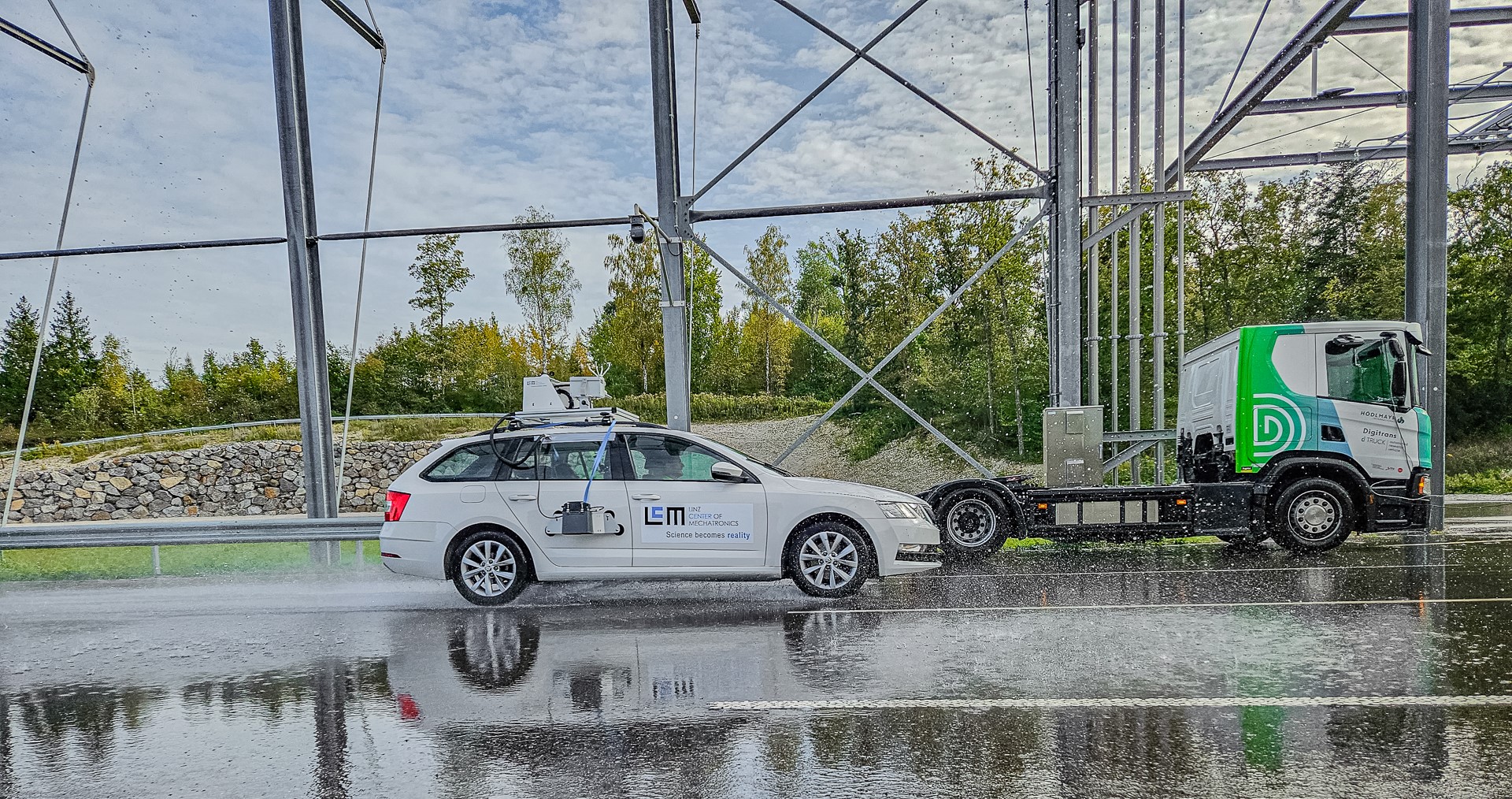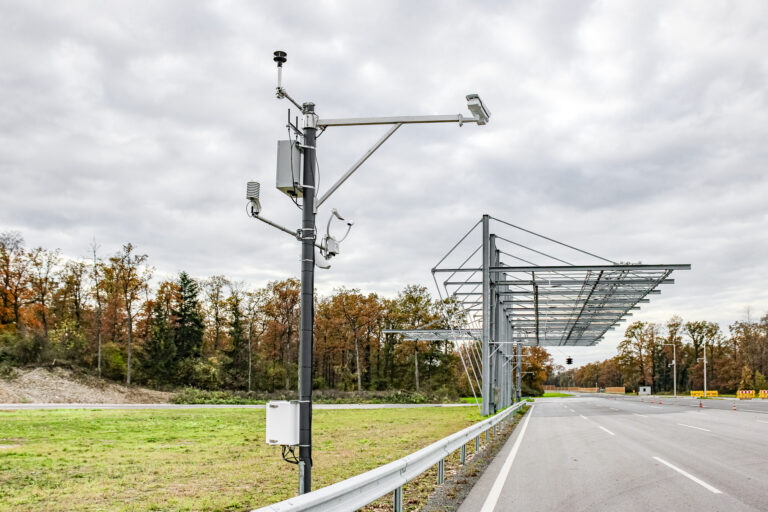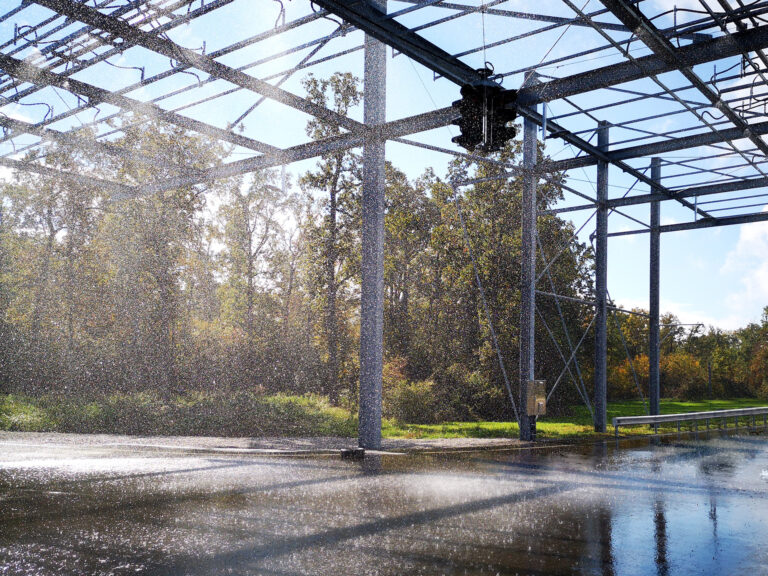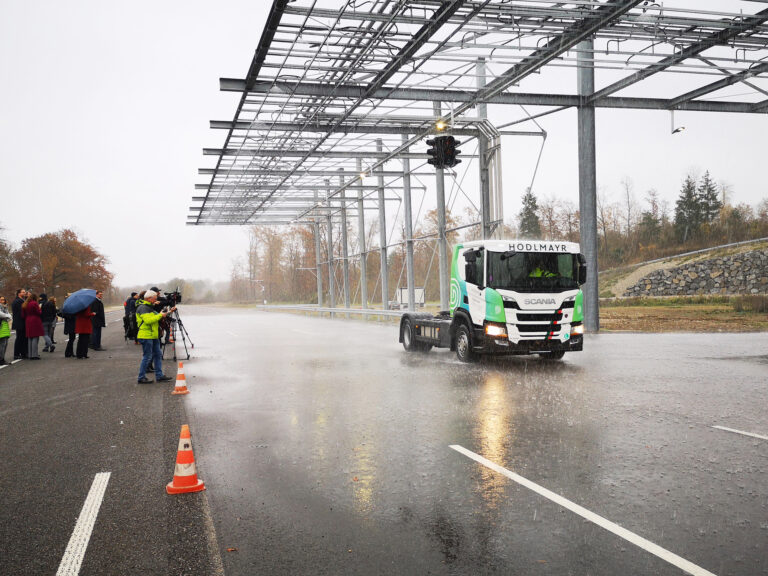Environmental conditions and weather data for autonomous driving - Successful measurement campaign at the Digitrans test center
As part of the pioneering EUREKA project “EUREKA Test.EPS”, an extensive measurement campaign was carried out that focused on recording environmental conditions. Organized by the Linz Center of Mechatronics GmbH, in close cooperation with Virtual Vehicle Research GmbH and the University of Graz, the campaign was carried out in the outdoor rain plant of the Digitrans Test Center for Automated Driving.
Comparison of stationary environmental data with mobile sensor system in the Digitrans Test Center for Automated driving
The measurement campaign focused on testing a mobile sensor system for recording environmental conditions such as rain and wind, the so-called “Mobile Environmental Sensor Rack”. The sensor system was mounted on the roof of a conventional car.
Tests were carried out in the digitrans rain plant on the proving ground St. Valentin at different rain intensities and speeds. The mobile test data from the “sensor rack” on the vehicle was then compared with the data from the stationary environmental conditions using the Digitrans road weather station and a mobile distrometer for measuring precipitation particles.
The data collected is used to record the prevailing environmental conditions during tests of environmental perception systems (EPS) and is of crucial importance for the further development and optimization of environmental sensor technology in autonomous vehicles.

Test scenario under the Outdoor Rain Plant with the mobile sensor system “Mobile Environmental Sensor Rack” mounted on a conventional car roof. © DigiTrans GmbH

Mit dem Laden des Videos akzeptieren Sie die Datenschutzerklärung von YouTube.
Mehr erfahren
Video Test.EPS rain track measurement campaign © Linz Center of Mechatronics GmbH (LCM)

Test scenario under the outdoor rain plant system with the mobile sensor system “Mobile Environmental Sensor Rack” mounted on a conventional car roof © DigiTrans GmbH
Effects of rain on sensors in autonomous vehicles: focus on liDAR and radar
Another exciting goal of this measurement campaign was to analyze the effects of rain on crucial EPS technologies such as liDAR or radar. This series of tests was carried out by Virtual Vehicle Research GmbH.
The findings will be used to make the sensors for environment detection (EPS) even more robust and reliable in future, thus improving the efficiency and safety of automated driving, especially in poor weather conditions, particularly in the rain.
You might also be interested in
Further Insights

Road weather station provides extensive weather data for the further development of automated driving in rain
A state-of-the-art road weather station supports the experts with a detailed analysis of the environmental conditions and provides a comprehensive real-time data set of the weather conditions on the Proving Ground in St. Valentin.

Five reasons why we built an outdoor rain plant for testing autonomous driving functions
Testing autonomous driving functions and their sensors under adverse weather conditions is an important safety criterion for the introduction of automated vehicles in Europe. Learn why it is becoming increasingly important to test these systems systematically and reproducibly.

Rain tests for automated driving – Digitrans launches Outdoor Rain Plant
On November 16, 2022, the specially developed outdoor rain plant for rain tests of automated vehicles and their sensors was put into operation. The system makes it possible to generate realistic rain at the push of a button, thus significantly simplifying the testing of sensors for environment detection in rain.
